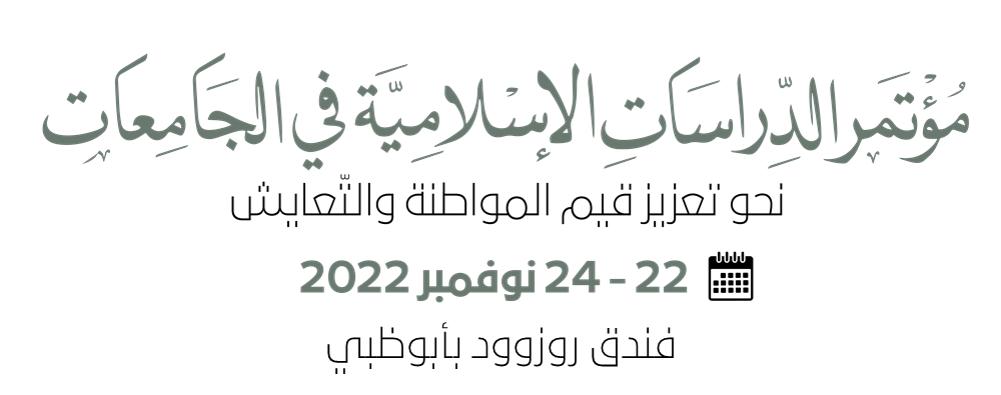




22nd -24th November 2022
The subject of Islamic studies taught in higher educational institutions has a crucial role to play in preserving the integrity of religious discourse, and enhancing Islamic sciences to contribute to intellectual development, renewal and modernization.
However, on examination of the state of Islamic studies in many Arab and Islamic universities, it is clear how inadequate most of them
are in performing this task, due to their ossified curricula, inertia, and closed intellectual circles. This hinders serious research, engagement and peer review with academia in the wider world, that would otherwise contribute to building bridges between religion and science; revelation and reason; Shariah and philosophy.
It is also noted that the content of many courses is clearly influenced by outdated science, poor methodology, and ahistorical views.
Muslim societies are in dire need of investing in academic excellence, the development and stability of their nations, and the advancement of various branches of knowledge and sciences which benefit humanity.
For this reason, it is integral to propose ideas and to contribute to the broader renewal of Islamic studies to achieve these desirable ends. This rational integration should aid educational outcomes and help us produce balanced and informed religious leaders, who synthesise the humanities with religious awareness, and understand their societies lived reality. It should produce religious discourse that responds to the aspirations of our nation and its goal of sustainable development.
If the outputs of Islamic studies in universities are often directed towards religious institutions, then providing opportunities for dialogue between academic bodies and actors in religious affairs, for example our mosques, Friday sermons, preaching councils, as well as presenters of religious and intellectual media programs, would open prospects for cooperation and intellectual cross-pollination between these parties, and contribute to integration of knowledge.
In fulfillment of its academic and research mission, and the duty to contribute to the service and development of knowledge, the Mohammed bin Zayed University for Humanities has chosen this theme for its second annual international conference:
The choice of this comes in the context of the major challenges facing the field of Islamic studies in the current era, it seeks to explore prominent contemporary debates, the benefit of various curricula, and prospects for development.
The university seeks to elicit discussion and deliberation, and benefit from the experience of others, to derive a number of recommendations that can be used in the development of Islamic studies in universities, starting with the renewal of curricula and ending with the improvement of outputs.
Based on the foregoing, the scientific committee of the conference suggests addressing the theme in the following axes:
This axis seeks to describe the reality of Islamic studies programs, which differ in terms of visions and contents, according to the types of institutions. It does so under three subheadings:
This axis aims to review the curricula adopted by universities and other insitutions at the research and teaching levels, in two sessions, the topics are divided between them as follows:
First Session: Research Methods in Islamic Studies.
This topic aims to produce theoretical frameworks and propose practical recommendations for a structured renewal of the most important sciences and knowledge that constitute the core elements of Islamic studies, which are represented under the following four subheadings:
This axis reviews prospects for integrating the Sharia sciences and the humanities. It seeks to highlight the potential consequences of this connection in terms of open horizons of creativity, and the development and renewal of Islamic studies, under the following subheadings:
This axis aims to explain what Islamic studies can contribute to enriching the public debate on issues of religious pluralism, the nation state, and universal moral values. It proposes several topics that deal with the Promotion of the Values of Citizenship and Coexistence and the objective and methodological problems it raises from the traditionalist or classical perspective. Two sessions have been consecrated to derive new features of a hermeneutic theory that overcomes these problems, these are:
Session One: Islamic Studies and the Value of Citizenship.
Session Two: Islamic Studies and the Value of Coexistence.
Since religious discourse is produced by the field of Islamic studies and disseminated through media and religious and other institutions, it is appropriate to single out this in an axis in which the following three topics are addressed: